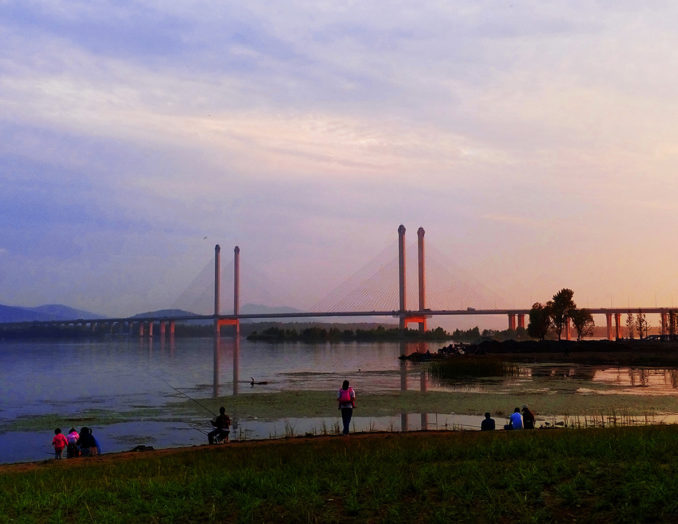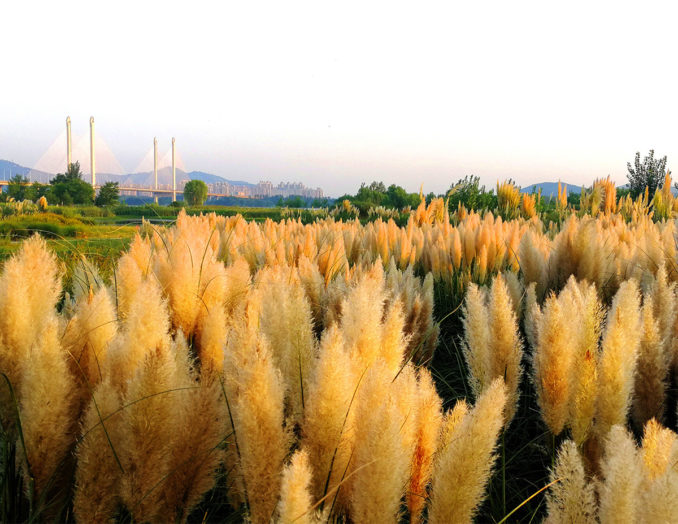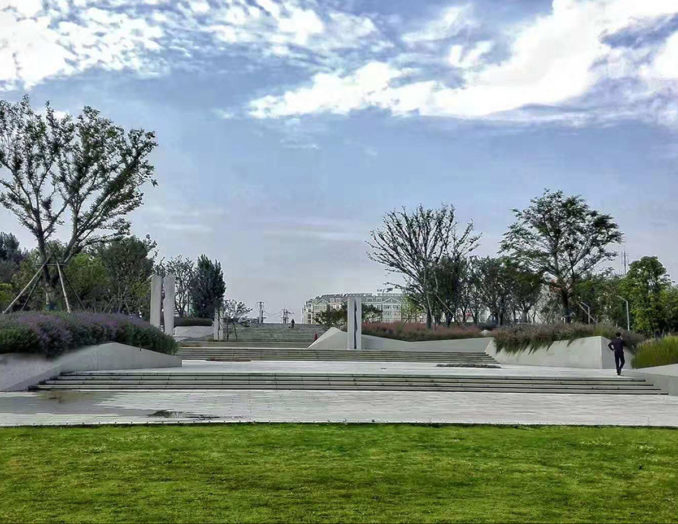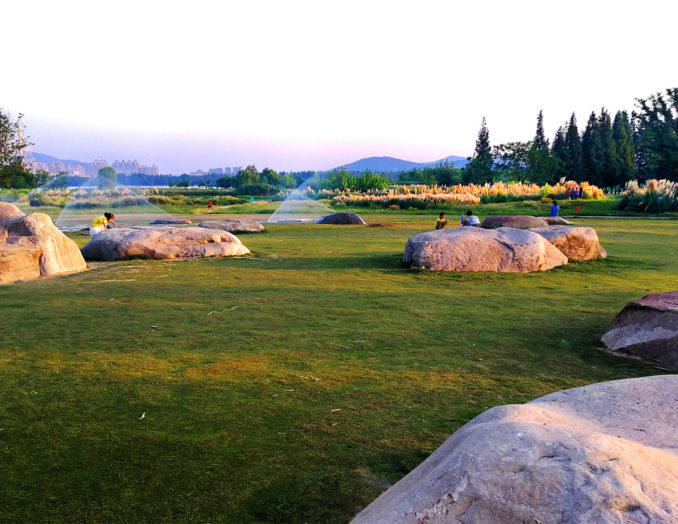
image credits:Xiaomei Zhang
The Moon Bay floodplain project with about 1.1km2 is located in the west of Xiangyang City, Hubei province. The site has come into being under thousands of years’ scouring of the Han River. Backing the main embankment of the river on the north, adjoining the river which has several photogenic islets on its route and facing stretching mountains on the south across the river, the area is endowed with excellent natural resource and spectacular scenery. It is covered with grasses, distributed with woods and arbors, and inclines southward to the river, the photogenic islets and water bodies. Due to the previous city expansion and industrial development, the area was dumped with rubbish and its vegetation was damaged; moreover, waters were isolated from one another; thus suffering from serious eutrophication because of little fluidness.

Influenced by the monsoon climate, the Han River has its water level greatly fluctuated. During flood periods, part of the area is submerged, with its underground water level gradually rising from north to south and the pH value of the soil near the river increasing to a high level.
Design strategies and approaches:
In order to restore an eco-friendly floodplain park we kept the following strategies and approaches:

The first is to delineate the land forms and water ways on site to follow the river course and to respond to water level fluctuations, which are characterized as embankment, islets, ponds and bottomlands based on our analysis of the site elevations and soil conditions.
The second is to create spaces with ecological benefits and aesthetic values to allow natural growth of vegetations and to attract birds, fish and other small animals and so forth, nevertheless, a large amount of wildness land has been protected to avoid disturbance by human activity.

The third is to design a park where not only the ecological improvements are greatly appreciated, but also a place people can use daily. Based on the original landforms and vegetations, an overall structure of landscape is designed in a succession of “woodland, bottomland, islets and shallow water”, forming vast spaces characterized by different zones of ecological communities.
Furthermore, a green lane has placed on top of the flood wall to connect the site with other parts of the city as well as to make the area more accessible. Waters are connected by reshaping the landforms in the park to form a wetland system of different depths. Most ponds and drainage works are biologically purified through dozens of kinds of aquatic plants for multi-step water treatments, so as to give rise to different plant communities and micro-environments. A dredged water system with vegetated ponds and water ways to ensure the return of a large number of birds, leading to the construction of a system which functions as an ecological regenerator.
Design Concepts:
Flowing river: The river, streams and ponds are connected by dredging waters. The green lanes, open space and vegetations are designed in correspondence to the flow of the river to create friendly, active and dynamic spaces.
Splendid sunlight: Interesting spots and visual elements are chosen to the advantages of the park (being long on the east-west axis and facing the river to the south) for sunrise and sunset views.
Islets and ponds: The elements of islets and ponds are frequently used to show our respect to the original feature of the site, and make them visually and ecologically valuable features.
Open spaces: Large open spaces are created accordingly, where people can participate in various activities, see the landscape and explore the hidden beauty of the park or to have places to sit. think, study, and feel the touch of nature.
By making a full consideration of reconstructing a eco-friendly river bank, we restored water ways, native plant communities which helps to bring back birds, fish and other small animals. By providing sufficient pathways and site structures we created opportunities for people to play and to experience the landscape. The place has becomes a vivid river front park for people to relax, morning exercise and for family gathering and other activities. The overall project of the Moon Bay floodplain has realized its vision and succeeded its goals.
Landscape Architect: Orient Landscape 北京东方艾地景观设计有限公司
Images: Jianwei Li; Xiaomei Zhang
